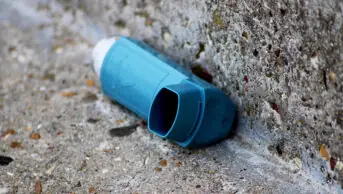
Jon Barlow
Government funding for medical research has been awarded to a project that will help prescribers in Scotland select the most environmentally-friendly medicines for their patients.
The grant, worth £100,000, has been awarded by the Medical Research Council to NHS Highland, the University of Highlands and Islands — Environmental Research Institute (UHI-ERI), and the University of Nottingham.
It will support a project to develop the first “eco-directed formulary” that will incorporate environmental data on medicines into the prescribing process, alongside clinical and cost effectiveness.
The project proposes that if medicines are of comparable medical efficacy, safety and effectiveness, then information on their environmental impact should be available to prescribers to enable them to make more sustainable prescribing choices.
The 12-month project will build on activity of the cross-sector One Health Breakthrough Partnership (OHBP) — a collaboration between NHS Highland, Scottish Water, the Scottish Environment Protection Agency (SEPA), UHI-ERI, the James Hutton Institute and the Centre of Expertise for Waters.
It will use a visualisation tool launched by SEPA on behalf of the OHBP, which includes data on medicines detected in the Scottish water system and NHS Scotland prescribing data.
NHS Scotland has estimated that between 30% and 90% of a dose of medicine taken orally may be excreted through urine into wastewater systems and begun trialling methods to eliminate pharmaceutical residues from wastewater in November 2021.
In October 2021, the Royal Pharmaceutical Society (RPS) called for manufacturers to readily supply information on the environmental risk of medicines so it can be included in NHS prescribing guidance and formularies.
Sharon Pfleger, consultant in pharmaceutical public health at NHS Highland, announced the grant at the RPS’s annual conference on 11 November 2022.
“Medicines have changed the face of healthcare and brought benefits to millions of people across the world. However, with the climate and biodiversity crises, healthcare has a moral and social responsibility to limit its environmental impact,” Pfleger said.
“This research will enable key disciplines and organisations to come together to pave the way for more sustainable prescribing in Scotland. It is the beginning of a journey to discover what’s good for our patients is also good for the planet.”
Claire Anderson, president of the RPS and professor at the University of Nottingham’s School of Pharmacy, will also be working on the project, alongside assistant professor of international pharmacy, Naoko Arakawa.
“With climate change and our impact on the environment in the spotlight this week during COP27, I am delighted to be working on such an important project for healthcare,” said Anderson.
“This research will generate new knowledge sharing and awareness of the environmental impact of medicines, and help benefit the NHS, prescribers, patients and the environment we rely on.
“It has the potential for both UK and global impact on the choices that health professionals make about which medicines to include in formularies.”


